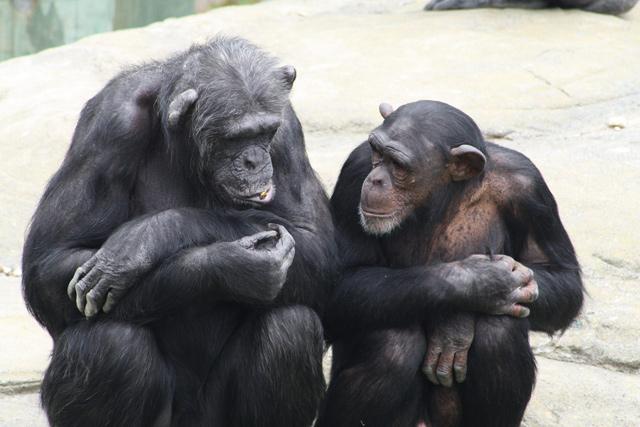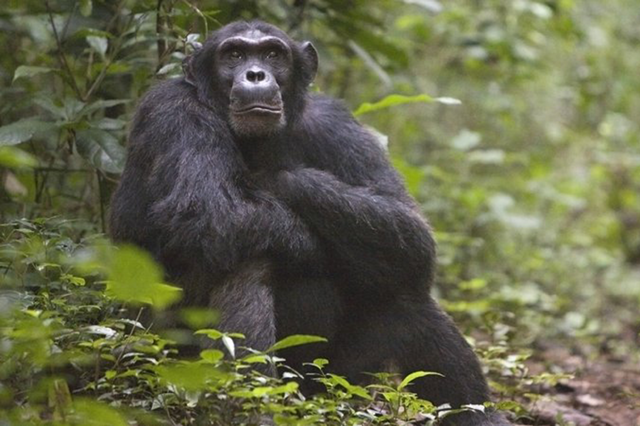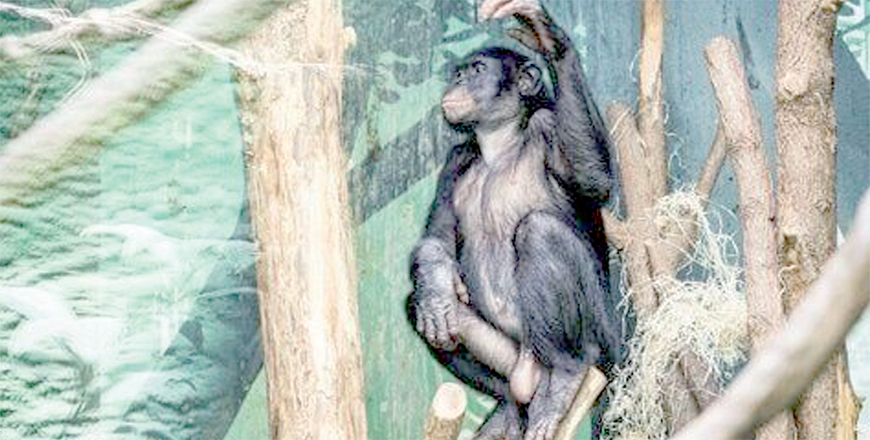You are here
Like humans, aging chimps prioritise important friendships
By AFP - Oct 28,2020 - Last updated at Oct 28,2020

Photo courtesy of earth.com
WASHINGTON — When it comes to friendships, people are known to become more selective with age.
It turns out the same is true of male chimps, who have fewer yet more genuine pals to ape around with as they get older, according to a recently published study in the journal Science.
The research, which was led by animal psychologist Alexandra Rosati at the University of Michigan, was said to provide the first evidence that animals exhibit age-related social selectivity, and could help us understand more about why humans behave as they do.
The authors drew on a huge dataset of 78,000 hours of observations performed at the Kibale National Park in Uganda between 1995 and 2016.
They reported on the social interactions among 21 wild male chimpanzees (Pan troglodytes) ranging in age from 15 to 58 years.
Males were chosen because they remain in the communities in which they are born, whereas the majority of females disperse to new groups when they become sexually mature.
Aside from being our closest animal relatives, chimpanzees are an ideal species to compare to humans because they live long lives — sometimes until their 60s — and have a wide-degree of choice in whom they befriend.
Male friends groom one another, hunt and share meat together, collectively patrol the boundaries of their territories, and form alliances to attain and keep high rank in their groups, which in turn leads to more individual reproductive success.
To study their affinities for one another, the team developed an “association index” that was based on how often a male within a party was in close proximity (under five metres) to another, relative to how much they associated with all group members.
The team produced three categories: mutual friends, who both showed a preference for sitting with each other, one-sided friends where only one party showed a preference but the other did not, and non-friends where neither side preferred each other.
According to the findings, older males had significantly more genuine friendships than their younger counterparts, whose attempts at bromance were more often lopsided.
For example, a 40-year-old male had on average three times as many high-quality friendships and one-third as many asymmetric friendships as a 15-year-old.
Emotional maturity
Males over the age of 35 were also found to selectively groom their genuine friends, while the chimps engaged in less aggressive behaviour toward others in their party — such as hitting, biting, chasing or hostile displays — as they got older.
Finally, while the older chimps spent more time by themselves than the younger ones, when they did choose to mingle it was with important social partners.
Writing in a related editorial, Joan Silk of Arizona State University, Tempe, said the paper had provided “convincing evidence that male chimpanzees behave much like humans do as we age, and this pattern might exist in other primates as well”.
It had been theorised that, as people age, they focus on their oldest and most important friends rather than looking for new ones because of their approaching sense of mortality.
But since chimps probably aren’t capable of such perspective, Rosati and her colleagues suggested other factors may be at play, like a reduction in emotional reactivity.
Strong friendships might also help aging chimps continue to thrive despite a decline in their health and social status, they added.
Related Articles
By Patrick GaleyAgence France-PressePARIS — Chimpanzees develop specific handshake-like gestures depending on their social group, according
PARIS — The drummers puff out their chests, let out a guttural yell, then step up to their kits and furiously pound out their signatur
WASHINGTON — Humankind’s two closest primate relatives are often said to embody contrasting sides of our nature: peace-loving bonobos versus

















